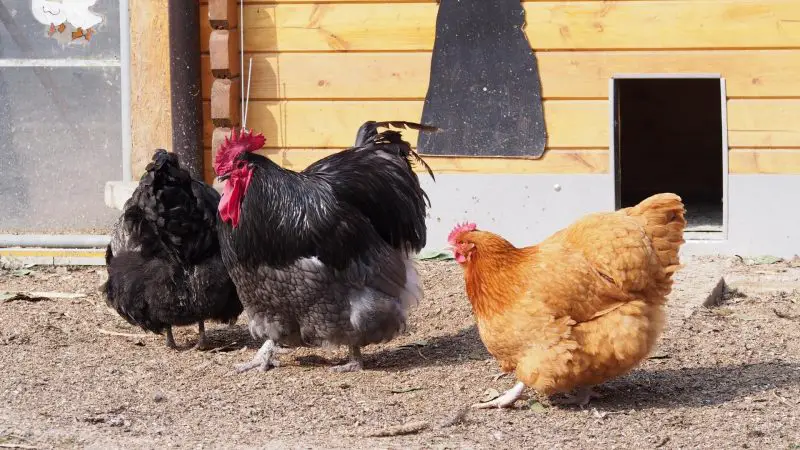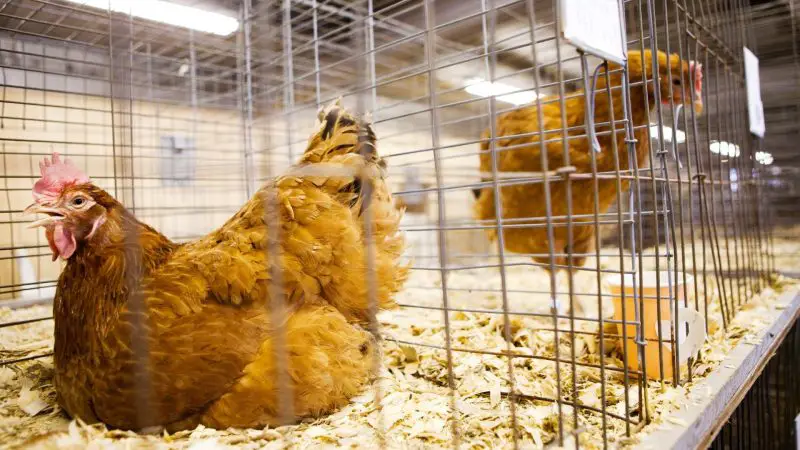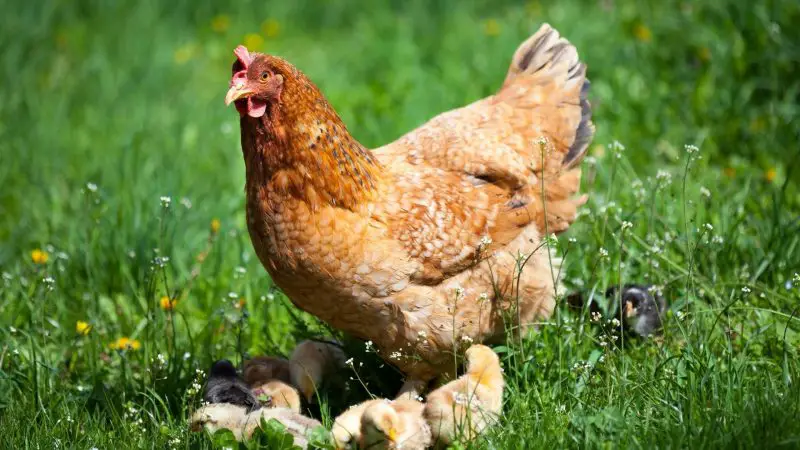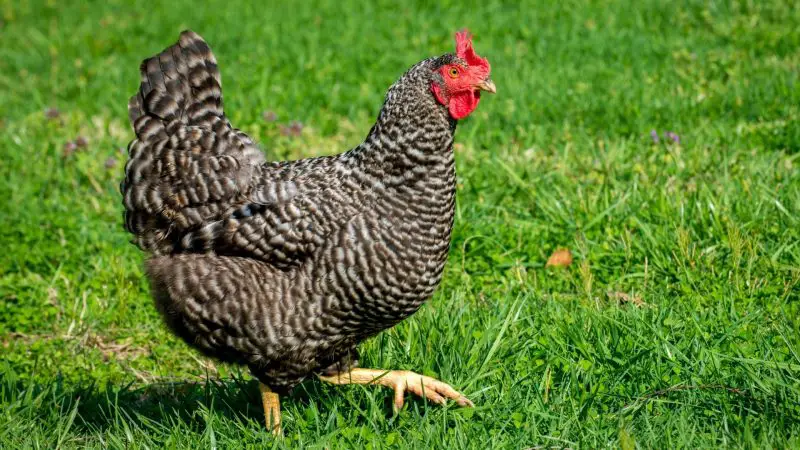Even though you handle a small flock of chickens, you should worry about possible diseases. Summer and a warm environment can be the causes.
Coccidiosis is what you have to watch out for in this setting. You have to know the cure to save the lives of your chicken. Just like how corid can end coccidiosis.
Is corid dosage effective against coccidiosis? Corid dosage is effective against coccidiosis. Corid is the brand name for amprolium, the right medication for coccidiosis. It needs to be dissolved in drinking water and administered for five consecutive days. It overcomes the disease in just a matter of 3 or 5 days.
There’s an FDA approval to use it for laying hens. Furthermore, eggs laid by hens who took corid are safe for consumption. If you’re a novice with coccidiosis and corid, don’t worry about it as this article will be your guide.
What Is Coccidiosis?

Coccidiosis or cocci is a common intestinal disease that arises in summer or warm environments. It happens because of the host-specific parasite that lives in the intestinal tract.
As it dwells in the digestive system, it damages the intestinal linings and interrupts the ability of the chickens to absorb nutrients. The medication should be given promptly, especially to chicks, as they are more susceptible to this disease than the matured chicken.
Symptoms
Since coccidiosis is an intestinal disease, the symptoms are feces with blood or mucus, dehydration, diarrhea, droopiness, loss of appetite, pale combs, and wattles.
How Is It Spread?
Coccidiosis spreads in an environment contaminated by fecal. When chickens swallow it unintentionally, the eggs in the intestine develop and infect the chicken’s tract. In this manner, a single parasite can infect the entire flock.
Chickens catch the parasite while searching for food and pecking in feces and dirt. It happens because the parasites in the feces increase in numbers even though they’re in the soil. When they eat more, it increases the chance of getting the disease.
Prevention
Vaccination is the easiest way of preventing coccidiosis. It can be given on the day of hatching for the chickens to develop immunity to the parasite.
Sadly, most chickens that roam in the backyard are not vaccinated. The prevention, in this case, is to minimize the exposure to parasite load.
Consuming a few parasites is not harmful at all. It develops strong immunity instead.
But if a huge number of parasites get into the chicken’s body, the disease develops. Litter quality and bird density are vital things to good management practice.
The bird density depends on the chicken breed and setup. A sign that you don’t have a good density and set-up is that your chickens die quickly. Monitoring litter around the feeders and waterers is another way of disease prevention.
In summer, the chickens drink more water, and spilling is inevitable. So, the feeder and waterer need to be occasionally moved to a dry spot. Removing caked or wet litter will also help with the prevention.
Diagnosis
To diagnose the cause of coccidiosis, fecal material should be sent to a laboratory. The parasite called ‘oocyst’ is easily detected by a microscope. A dead body can also be examined for diagnosis.
These procedures are not necessary for an experienced poultry vet who can just inspect the intestines and confirm the infection.
Treatment
Treatment for coccidiosis should only be applied to sick chickens. Administering the medication at an improper time, too early or later, interferes with immunity growth.
Also, it’s not advisable to do it in their first 14 days. If they show symptoms after the said period, you have to seek the advice of a veterinarian with fecal floatation analysis.
A medicated feed with amprolium can replace regular starter feed. When buying medicated feed, read the label and check if amprolium is in its content.
Chickens tend to lower their food intake during hot days. Thus, the medicated feed has good effects on them. It’s good to talk about it with the expert as some supplements can decrease the efficacy of amprolium.
Will Coccidia Go Away on Its Own?

Coccidia perishes when the temperature is below freezing. They won’t spread when sick animals are separated, and there’s good sanitation.
Corid Dosage for Chickens
The treatment should be done for five consecutive days. Water is mixed with the 20% soluble corid powder. The daily dose is 10 mg for every kilo of the chicken’s weight. You may administer the mixture through a No products found..
In terms of the treatment protocol, you have to put 16 oz of corid to 100 gallons of water. If it’s for drench treatment, you need to add 3 oz of corid to 1 pt of water.
What Is Corid Used For?
Corid is used for eliminating coccidiosis through thiamine deficiency. Hence, the parasites are starved to death.
Is Corid an Anti-biotic?
Corid isn’t an anti-biotic, but it helps with the production of antibodies by putting some cocci in the system of the chickens to form a resistance against the disease.
How Do Corid Function?
Corid works against Vitamin B that is found in Thiamin. The said vitamin is vital for the growth and reproduction of the cocci parasites. However, corid blocks the thiamin receptors of these parasites. When corid takes effect, vitamin insufficiency kills them.
Is Corid Safe for Chickens?

Based on the approval and safety stamp from FDA, corid is safe for chickens when treating coccidiosis.
How Long Does Corid Take to Work?
With the right dosage of corid, improvement can be seen in two or three days. It sometimes takes longer, so you can continue the administration for 5 or 7 days.
If there’s no improvement, it’s best to consult a veterinarian as chickens may have a different kind of disease.
Natural Ways to Treat Coccidiosis
You won’t need to buy costly medications, food items, or herbs to treat coccidiosis. If the case of the chicken infection is not severe or out of control, you can just collect essential ingredients from your kitchen. Here are some ways to follow:
- Mix organic apple cider vinegar with water. Give it to your chicken a few times, and if you can see some results, you save some money.
- Increase the good bacteria in the chicken’s stomach by adding a little garlic to the yogurt.
- Cleanliness does a lot of good things, including eliminating infection of cocci parasites. You have to keep the poultry’s environment dry as moisture encourages the growth of cocci and other diseases.
How Long Can a Chicken Live With Coccidiosis?

As mentioned, coccidiosis is a disease that inhibits nutrient absorption. This disease’s prepatent period is four to seven days. The parasite can survive for a long time, as it depends on environmental conditions.
What Is Amprolium for Poultry?
Amprolium is a well-known anticoccidial medication to prevent and treat coccidiosis in chicken and turkey. In the USA, it’s one of the approved medications of the FDA for egg-laying eggs. There are various brands of amprolium, and they are as follow:
- Corid soluble powder 20% – Every one gram of this medication has 200 mg of amprolium. It’s water-soluble and used for 5-day treatment and coccidiosis prevention for 21 days.
- No products found. – This is sold as a 16 oz bottle or one gallon. It’s also utilized for 5-day treatment and disease prevention for 21 days. It’s also mixed with water. Moreover, every 1 mg of this solution has 96 mg of amprolium.
- Amprolin 300 WS – It’s a water-soluble powder that is mixed with drinking water. It’s used for both treatment and prevention. A kilogram of this powder should be mixed with 5,000 L of water for prevention and applied for a week or two. The same amount of powder is mixed with 1,250 to 2,500 L of water for 5 to 7 days with a withdrawal of 3 days.
- 9.6% oral solution, AmproMed P for Poultry – This solution is recommended for treatment and prevention. To prevent the disease, 8 oz of solution for 50 ml of water is needed. For treatment, 16 oz of this product should be mixed with 50 ml of water.
- Coxoid – This is available in two sizes which are 112 ml or 500 ml. 28 ml is added to 4.5 L of water to treat infected chickens for 7 days. In a serious outbreak, you can administer it in half-strength (14 ml for 4.5 L of water) for a week.
Summary
Apart from knowing that corid dosage for chicken is effective against coccidiosis, you were able to learn more about the said disease. You can look for symptoms or have a veterinarian confirm the case.
Be mindful of the corid dosage that you give to sick chickens. It’s also best to maintain the cleanliness and dryness of the environment to impede the development of the disease.
List of Sources
Managing Chicken Coccidiosis in Small Flocks During Summer
Manage Coccidiosis to Reduce Losses Among Newborn Animals, Part II
